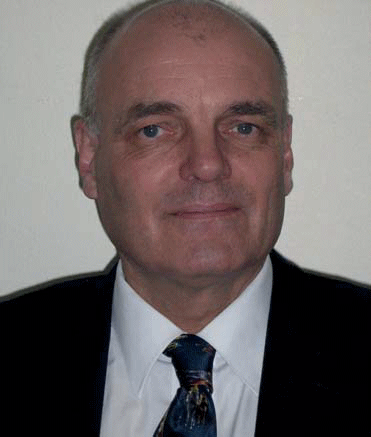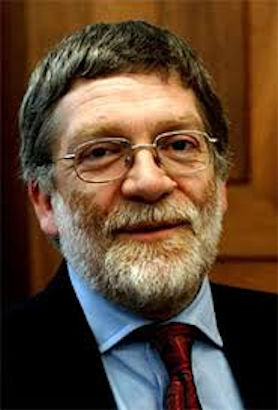Founded 1980
Chair:
Secretary:
Treasurer:
Graham Smith
Jan Thompson
Graham Mumby-Croft
Paul Laxton
Issue 79 Autumn 2018
BLAST FROM THE PAST... PHIL WHEATLEY SPEAKS AT 2018 PGA CONFERENCE
When Phil Wheatley retired as Director General in 2010 relations between him and the PGA had become very strained as a consequence of the failure to reach agreement over what the Service had called "Workforce Modernisation," abbreviated at the time to WFN. Eight years is a long time and enough water has flowed under the bridge since to encourage delegates to take a view of his reign as something of a Golden Age and give him a warm welcome. Mr Wheatley was, however, robust in defence of his successor, and expressed his concern that Michael Spurr's career could be ended rather than that of ministers whose policy is responsible for the current malaise in HMPPS. He noted that in the Scottish Service, where ministers work with the Chief Executive rather than around him, there are fewer problems.
Mr Wheatley identified three reasons for the current round of troubles. These were austerity, wild swings in criminal justice policy, and the prison population. He was clear that the 25% reduction in budget and a similar reduction in staff were unmanageable. Mr Wheatley referred to the Faustian bargain between the unions and the MOJ, the former swallowing the drastic reduction in staff in return for the policy of creeping privatisation of prisons being abandoned. Where further privatisation did occur, as with the Probation Service and Prison Works' departments, they were botched, and ministers cannot say they were not warned. Mr Wheatley made reference to the size of the prison
population, largely unchanged since his retirement, despite the slashing of the budget. Perhaps more importantly, he noted the changes in composition of the prisoner population: more gangsters, more sex offenders, and a much higher percentage of offenders serving longer sentences. These, of course, are being managed by a prison officer cadre that has had much of the experience stripped from it as a result of voluntary redundancy packages.
Where Mr Wheatley could ski ‘off piste’ in a way that was not open to him during his Prison Service career was when he treated delegates to a magical history tour of the Secretaries of State since his retirement. In a little over eight years since then there have been six, leading not just lack of continuity, but to wild swings in criminal justice policy. Lack of space and a measure of discretion inhibits me from reporting him at length, but I should mention that he was particularly scathing of the split between policy and operations, engineered under Liz Truss, which he described as nonsense that didn't work in the 1980s. He was critical of a box-ticking culture engendered by ministers, and of action plans that were no more than a substitute for action.
Finally, he drew attention to Rory Stewart's proposal that the military could have an input into the training of Prison Service leaders. Mr Wheatley recalled that when he joined the service many of the in-charge Governors were Second World War veterans who continued to use their military titles and impose quasi-military discipline. And their prisons were still squalid!
PAUL LAXTON



